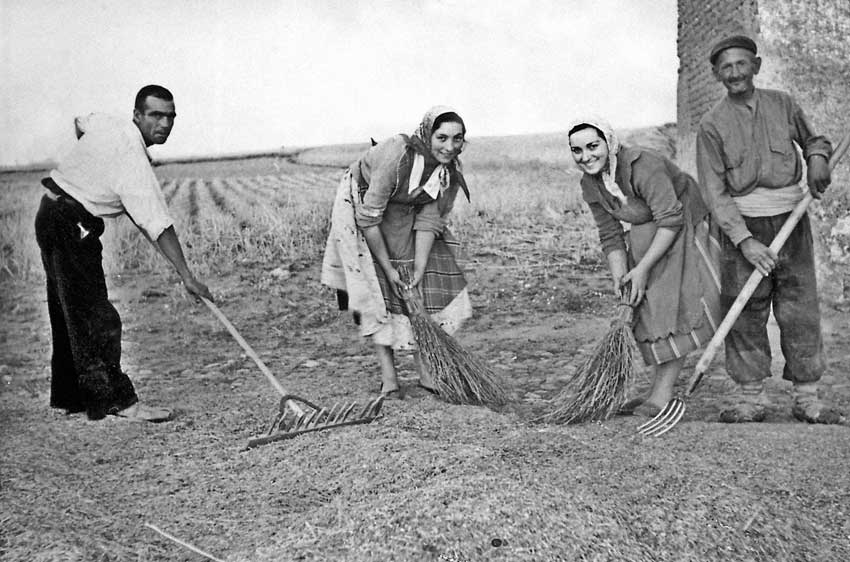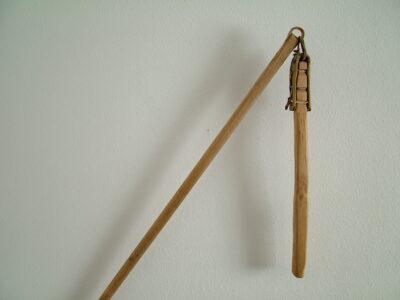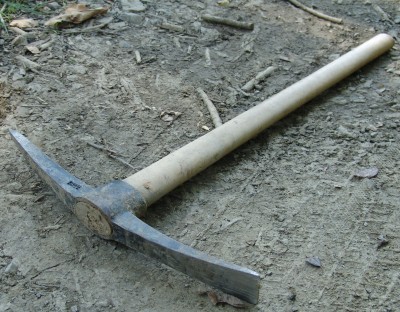The march of progress and the changing demands of an increasingly industrialized world without frontiers has changed the tools we use, but that does not mean all have lost their utility.
For the survivalist, homesteader or simply those interested in the methods of times gone by, there are plenty of useful tools that our ancestors used that the modern world has almost forgotten. They could be used now – or stored away for an uncertain future. Here are five:
1. Flails
Flails are ancient grain-threshing tools made obsolete by modern harvesting methods. While thankfully we no longer have to thresh grain by hand, a homesteader growing small amounts of grain may find these useful. Made from two pieces of wood and fastened together with a chain, a flail was swung so that one stick struck stacks of wheat or other grain, knocking the grain from its husk. While labor-intensive, it is an effective process, and when all else fails, it is a great way to thresh your grain harvest, and a skilled hand can thresh about seven bushels of wheat in a day.
2. The hewing axe
In a world where timber and lumber are cut in high speed, there is precious little reason to trim a log square by hand. Unless, of course, there is a long-term blackout, or you live so far away from civilization that you have no other choice.
Are You Prepared For A Downed Grid? Get Backup Electricity Today! [3]
Hewing axes are just what they are described as: wide-bladed axes designed for shaping round timbers square. These specialized tools are a must if you want to make your own timbers and you don’t have access to a mill of some sort.
3. Augers
While more commonly seen today in mechanized versions, the original hand auger was an absolute must for boring holes in beams and timber. Regardless of if you are fastening things together with bolts, lag screws or simply using wooden pegs, this handy and somewhat obscure in its manual form hand tool will be the quickest way to bore large and deep holes. Put one of these aside, because without being able to bore holes, your ability to construct buildings gets a lot harder.
4. Butcher knives
It’s not that we don’t use butcher knives anymore, but rather that we don’t use them as our ancestors once did. Throughout history, a common person might have one or two basic utility knifes, and while we now enjoy all manner of special blades, many people once made do with a basic butcher knife. It is easy to get caught up in carrying special hunting knives and forget that once upon a time, our ancestors carried a butcher knife on their belt and made great use of it. So if you are looking for an affordable utility knife, consider a butcher knife.
5. Pick mattock
Unless you work regularly with digging tools, these brilliant and simple hand tools are likely to be as forgotten as crank telephones. Combining a wide pick, with an adze, you get two tools in one that are perfect for gardening, working the soil, digging and cutting roots and even shaping timbers. The pick part speaks for itself, but the adze can be sharpened and used to shape wood, cut or any other purpose. This indispensable tool is important for off-grid survival and homesteading.
I am pretty certain that our great-grandparents would happily choose many of the labor-saving tools and methods we have today. However, knowing the simpler tools of the past is important to surviving in an uncertain future — plus there is great personal satisfaction in mastering difficult and nearly forgotten skills. Anyone who is prepared or preparing to live off grid must be ready to dial back their technology base and skill sets to a 19th century or earlier level, and that starts with understanding the tools our great-grandparents would have used.
What would you add to this list? Share your tool tips in the section below:
Are You Prepared For Extended Blackouts? Read More Here. [5]


